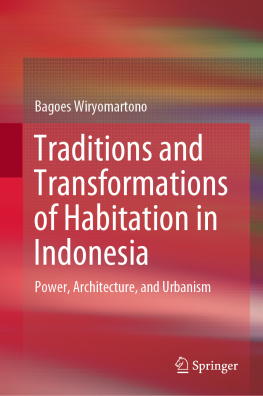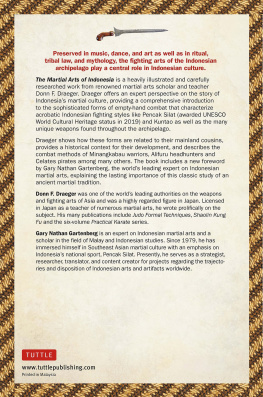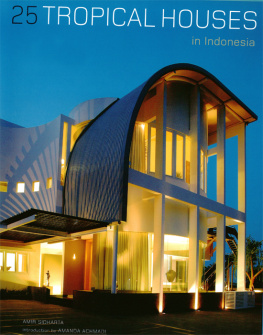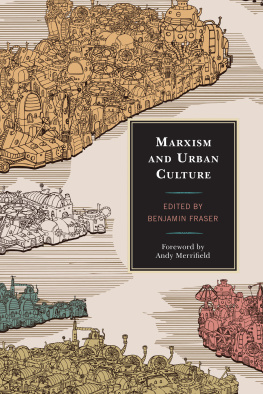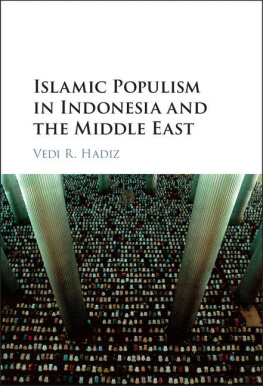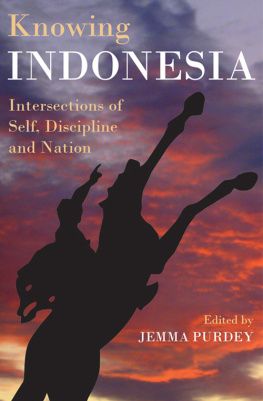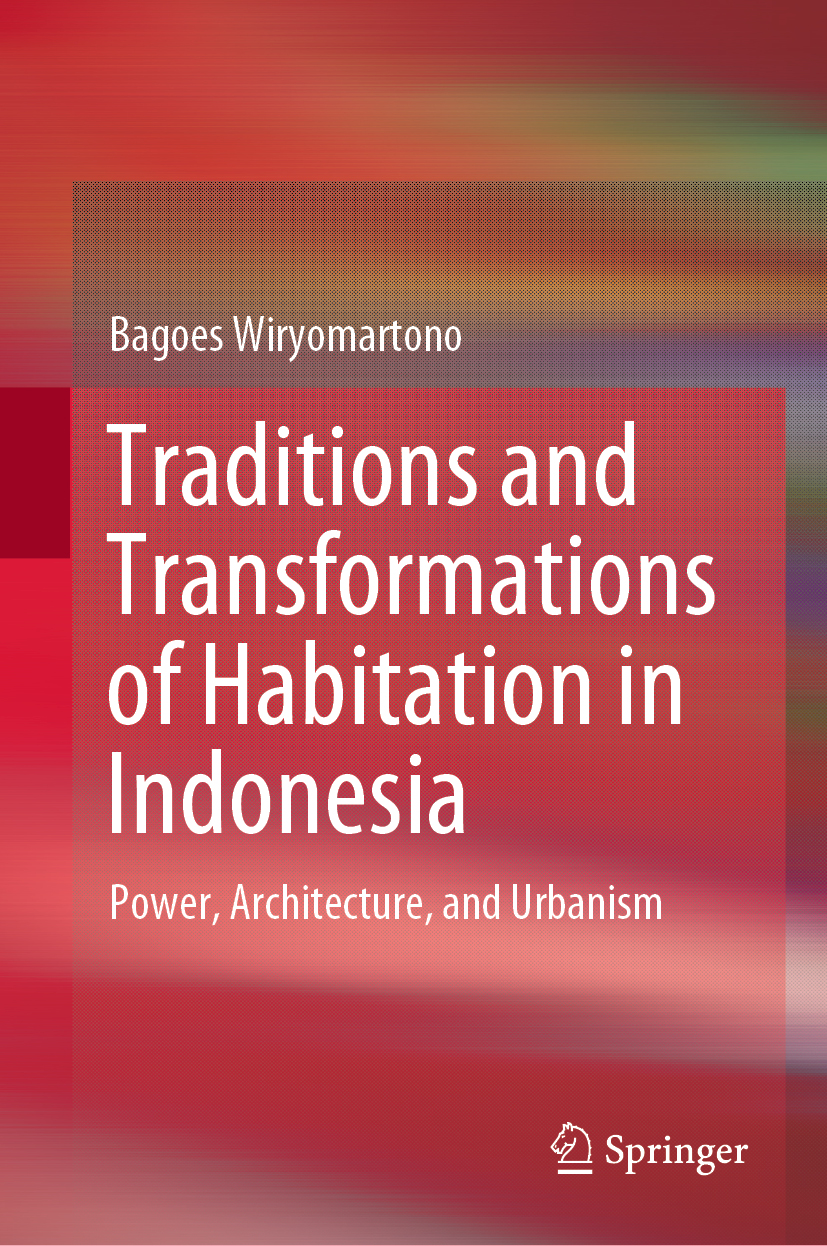Bagoes Wiryomartono
Independent Scholar, Toronto, Canada
ISBN 978-981-15-3404-1 e-ISBN 978-981-15-3405-8
https://doi.org/10.1007/978-981-15-3405-8
The Editor(s) (if applicable) and The Author(s), under exclusive license to Springer Nature Singapore Pte Ltd. 2020
This work is subject to copyright. All rights are solely and exclusively licensed by the Publisher, whether the whole or part of the material is concerned, specifically the rights of translation, reprinting, reuse of illustrations, recitation, broadcasting, reproduction on microfilms or in any other physical way, and transmission or information storage and retrieval, electronic adaptation, computer software, or by similar or dissimilar methodology now known or hereafter developed.
The use of general descriptive names, registered names, trademarks, service marks, etc. in this publication does not imply, even in the absence of a specific statement, that such names are exempt from the relevant protective laws and regulations and therefore free for general use.
The publisher, the authors and the editors are safe to assume that the advice and information in this book are believed to be true and accurate at the date of publication. Neither the publisher nor the authors or the editors give a warranty, expressed or implied, with respect to the material contained herein or for any errors or omissions that may have been made. The publisher remains neutral with regard to jurisdictional claims in published maps and institutional affiliations.
This Springer imprint is published by the registered company Springer Nature Singapore Pte Ltd.
The registered company address is: 152 Beach Road, #21-01/04 Gateway East, Singapore 189721, Singapore
(Village has its own custom and tradition; urban settlement has its own law and order, from Javanese proverb)
About the Author
Dr. Bagoes Wiryomartono
is an independent scholar in Toronto, Ontario, Canada. Bagoes earned his Doctorate in architecture and urbanism from the Aachen University of Technology in 1990. Germany. He was a postdoctoral fellow for architecture at the EastWest Center, Honolulu, Hawaii, and Fulbright Scholar at the Smithsonian Institution, Washington DC, USA. The area of specialization of his teaching and research experience is focused on history, theory, and design of urbanism of various cultures and traditions in Southeast Asia and North America. He was a senior lecturer at the Bandung Institute of Technology (19811983, 19932002), and visiting research associate at the Asian Institute, University of Toronto, Canada (20032005). He was an associate professor at the Department of Architecture, Faculty of Built Environment ofUniversiti Teknologi Malaysia(20102013). Most recent scholarly books by Bagoes Wiryomartono include:Livability and Sustainability of Urbanism(Singapore: Palgrave Macmillan, 2019),Javanese Culture and the Meanings of Locality, Studies on the Arts, Urbanism, Polity, and Society(Lanham: Rowman & Littlefield, 2016),Perspectives on Traditional Settlements and Communities: Home, Form and Culture in Indonesia(New York-Berlin-Singapore: Springer Business Media 2014). He published his research in various Scopus journals on history and theory of architecture, urbanism, and culture in Southeast Asia as well as philosophical studies within the phenomenological movement.
The Editor(s) (if applicable) and The Author(s), under exclusive license to Springer Nature Singapore Pte Ltd. 2020
B. Wiryomartono Traditions and Transformations of Habitation in Indonesia https://doi.org/10.1007/978-981-15-3405-8_1
1. Political Culture and Habitation: An Introduction
Bagoes Wiryomartono
(1)
Independent Scholar, Toronto, Canada
Bagoes Wiryomartono
This book is about the pertinent practices of power in Indonesia with a focus on habitation. The book explores and unfolds the meanings of the relationship between people and place that constructs, develops, sustains, and conserves their culture and habitation in Southeast Asia; this relationship is regarded as the source and generator of cultural productions in terms of the built environment, artifacts, arts, works, and collective behaviors. One of the foremost sources of power in Indonesia is the patrimonial system of culture and tradition. This system categorically values and highly favors a strong leadership and dominant personality as father figure over a sociopolitically organized system and mechanism.
The study argues that the patrimonial system is the pivotal source and condition of the political tradition of Indonesia. The tradition maintains the patronclient relationship of sociocultural and economic production that characterizes, directs, manages, develops, maintains, and sustains the development of the built environment and populations. The system is considered effective because it resists direct opposition and disagreement. Challenges against the ruling government are considered threats and dangers of the seamless whole of the community as well as a nation-state. Accordingly, unity and integrity are necessary to be thought and perceived as a safe and healthy extended family.
Until today, the patrimonial system is commensurately functioning because the vertical mobility of populations is socioeconomically restricted with high-cost education and an exclusive political career. Traditionally speaking, populations are characterized by the extreme dichotomy between the few dominating elites and massive submissive commoners. The patrimonial ordering system becomes a reasonably organizing framework of the most populous Muslims on the globe. Despite the democratic process of the public election, the system works efficiently in daily practical politics because of its top-down chain of command.
To a certain extent, the patrimonial system does not rely simply on legal formal mechanisms and apparatus but deeply rooted in the spiritual leadership and belief system of people so that the paternalistic leaders of the country are able to bring people together and mobilize the resources toward the unity in diversity. Moreover, the patrimonial system characterizes the countrys lifeworld with the language of hierarchical gestures and social position. In other words, to understand the politics of Indonesia is to comprehend the culture and tradition of the political leadership of the country.
Substantially speaking, the book comprises several case studies concerning the relationship of power and habitation with specific geographic locations, certain sociocultural groups, and historical contexts. The studies are considered interdisciplinary within the framework of environmental humanitiesarts, architecture, urban studiesand social sciencesgeography, cultural anthropology, sociology. In this system, the studies are expected to unfold, dismantle, and disclose relations, functions, constructions, and notions of history, tradition, and cultural production. However, these studies are not intended either to be critical or to be diagnostic. Rather, the studies are projected to be comprehensively divulging and unveiling the aspects of interactive connectivity between the patrimonial culture and socioculturally constructed system of habitation. The cases were carried out from the authors work and life experience and observation in Indonesia with a focus on the various aspects of environmental humanities that shape, develop, and sustain the essence and sense of habitation that includes history, arts, architecture, culture, and urbanism.

